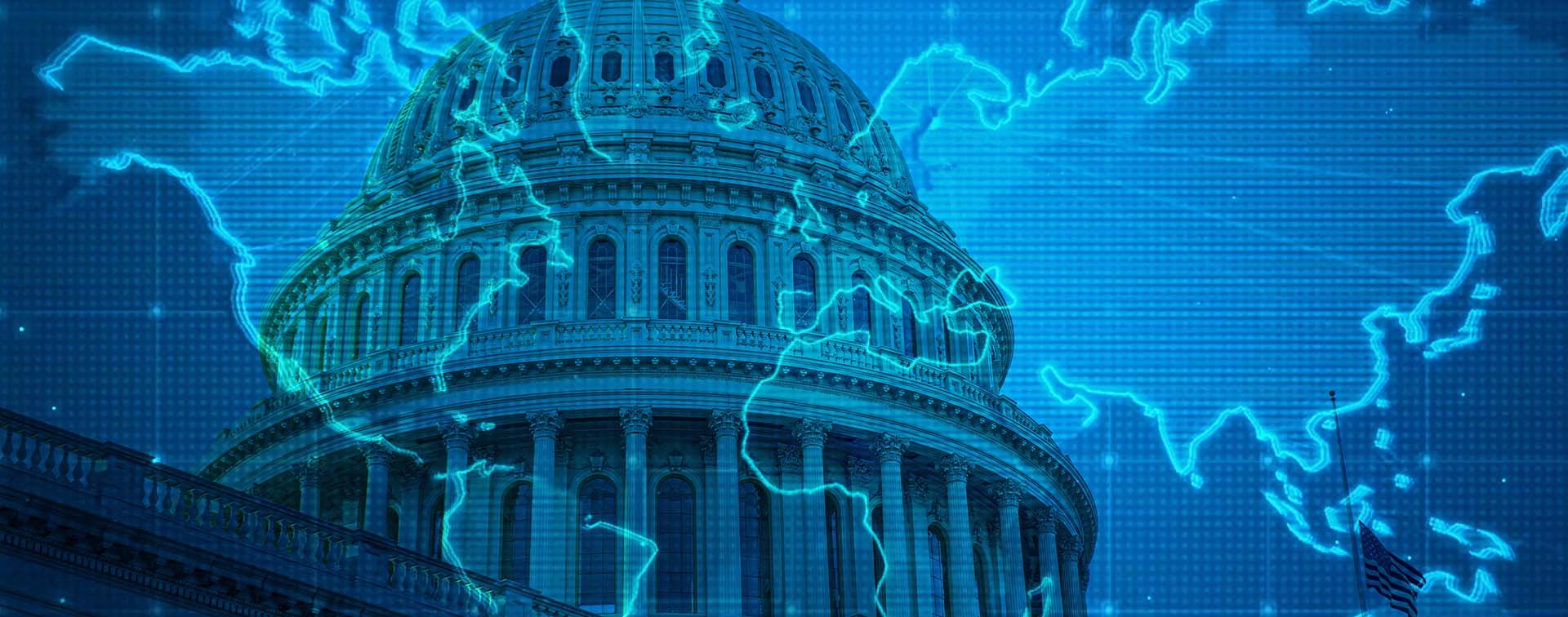
David K. Young is President of the Committee for Economic Development, the public policy center of The Conference Board (CED).
The first 100 days of the Trump administration have been the most active and consequential start to a new US presidency since Franklin D. Roosevelt took office in 1933 and launched the New Deal. To grasp what lies ahead, it’s important to reflect on the lessons learned so far: tariffs can be used to drive policy priorities beyond just trade; the long-established global trading system is fragile; the international world order, while intertwined, is fractured; changes in immigration policies reveal workforce vulnerabilities across multiple sectors; and business and the markets prefer predictability and certainty, and some businesses have begun pulling back investments where that clarity does not exist.
Understanding that we live and operate in a complex and highly interconnected global ecosystem, where ‘butterfly effects’ exist, magnifies the ramifications from the flurry of executive orders and policy changes emanating from the new US administration.
What lies ahead? At this pivotal moment, it’s essential to understand the key US policy areas that will shape future business strategies and investment decisions. Critical factors that will impact the economic attractiveness of the USA include tax policy, tariffs, regulation, immigration and/or investment policies, as well as the direction of US foreign policy.

Perhaps the most important issue is the expiration of the 2017 Tax Cuts and Jobs Act at the end of the year. At the same time, the debt ceiling needs to be raised. The most likely solution will be a reconciliation bill that combines the extension of key tax cuts with an increase in the debt limit. Then, however, Congress must also address the budget. Given that the USA has passed a budget only four times since 1977, the most recent being in 1997, do not expect Congress to pass the 2026 budget on time. Instead, it will likely resort once again to a series of Continuing Resolutions to keep the government funded.
The 90-day pause on ‘reciprocal’ US tariffs is set to expire on 9 July, prompting urgency among major trading partners to reach agreements to reduce or suspend these measures. While the USA is currently engaged in negotiations with over 60 countries, progress is being made and several new deals have been agreed. Simultaneously, many other countries are actively reshaping their trade relationships in response to changes in the global system.
In early May, the UK and the USA announced a new agreement to increase market access for billions of dollars in American exports, including beef, ethanol, and other agricultural products. However, many of the details remain to be finalized. This agreement would pare back tariffs that President Trump originally imposed on British steel, aluminium, and automobiles.
This was followed by the USA and China agreeing to ease tariffs and resume trade talks after months of escalating tensions. Both countries rolled back tariffs by 115% from 14 May marking a 90-day truce and a fresh start to negotiations.
The USA is continuing negotiations and prioritizing its other major trading partners, which include Canada, Mexico, India, and Japan.
Beyond the USA, many countries are looking to diversify their trade relationships in response to global shifts, particularly in relation to China. India and the UK recently reached a framework trade agreement, the UK’s largest since leaving the European Union, covering a broad range of goods but not services. Total bilateral trade between the two countries totaled GBP 43 billion in 2024 and was already forecast to grow, but the UK Government estimates that the new deal could boost that trade by an additional GBP 26 billion a year by 2040.
The new US administration is pursuing an agenda of deregulation across the board to spur economic growth. This includes a pivot from a ‘net-zero’ emissions policy to an ‘energy-dominance’ approach, while opening up additional sources of energy. As the Department of Government Efficiency (DOGE) extends its mandate beyond spending cuts to encompass regulatory reform, the changes are expected to affect every regulated industry and are likely to lead to litigation, shifting the focus to the US courts, including the Supreme Court.
The USA needs comprehensive immigration reform as declining birth rates and rising retirements are shrinking its workforce. In addition to several executive orders and increased spending intended to bolster border security, President Trump has proposed a ‘gold card’ visa program that would allow foreign investors to obtain permanent residence and a pathway to citizenship in the USA by investing or contributing USD 5 million. By comparison, America’s longstanding existing US EB-5 Immigrant Investor Program requires a minimum investment of USD 800,000.
In parallel, the USA has also adopted an America First Investment Policy, with new regulations expected later this year. It is designed to smooth the path of investment from partner and allied countries, while including new restrictions on investment to and from China and other nations deemed strategic concerns.
In addition to ongoing efforts to end the war in Ukraine and avoid potential conflict with Iran and in the Taiwan Strait, global attention is turning to the upcoming NATO Summit, set to take place in late June in The Hague. The USA is expected to press hard for increased European defense spending. Meanwhile, European allies will look closely for indications of the extent of the USA’s future commitment to Europe and transatlantic security.
Elsewhere, Israel has announced “concluding moves” in Gaza that entail deploying additional troops to take over the entire enclave. The situation between India and Pakistan remains tense following intense military action, which ended with a sudden but tenuous ceasefire announced by President Trump. And the recent elections in Canada and Australia were focused on their changed relationships with the USA. Geopolitics will remain a key issue for the imminent future and will potentially alter investment climates around the world.
While it is clear that businesses and investors prefer political predictability and stability, as highlighted by recent market volatility, the USA remains the front runner for long-term economic growth and investment.
The USA tops the world’s 10 wealthiest countries in terms of resident millionaires. New York ranks 1st in USA’s Top 10 wealthiest cities list, and Scottsdale, Arizona is the fastest growing wealth hub in the country, with growth of 125% over the past 10 years and is now home to 14,800 millionaires, 64 centi-millionaires, and 5 billionaires. In comparison, New York has 66 billionaires, while the Bay Area has 82, and Los Angeles 45. Overall, America’s millionaire growth 2014 to 2024 stands at 78%, closely followed by China at 74%. No other country comes close.
Despite a wave of policy changes and their subsequent implications around the world, the relative political stability, rule of law, economic prospects, culture of innovation, not to mention the US dollar remaining the global reserve currency, have squarely positioned the USA as an environment in which to do business and to invest. Does America remain the premier investment destination in the world? Simply put — it’s a resounding yes!